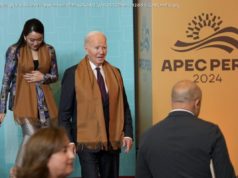This isn’t the usual China stimulus program. Wall Street wants way more from Beijing.
An investor covers his face in front of a stock board in Shanghai, China. Photograph by On Man Kevin Lee — Getty Images Getty Images
It used to be that China’s stimulus programs, most of them run by the People’s Bank of China, were welcomed by Wall Street. Not this time. No matter what the central bank does in easing its lending rules for the big state banks, investors think it is not enough.
“It is very hard to be bullish on China right now,” Janet Mui, an economist with Cazenove Capital in London told me over two months ago now. She was right. Between the trade war and structural changes in China, this new stimulus package has lost the sex appeal of stimulus packages of old. “China will not be able to do the stimulus that it used to do.”
Or will it? Take one look at the headlines on Caixin Global on Monday and it is clear: the central bank is nervous. They are lowering mortgage rates. China’s President Xi Jinping is not a fan of building and buying real estate just for the sake of…building and buying real estate. The central bank is also busy shoring up the local bond market. Liquidity is not so liquid.
Last week, China’s No. 2, Li Keqiang, basically begged central bank president Yi Gang for more aggressive monetary policy easing and better use of reserve requirement ratio (RRR) cuts rather than just getting state banks to use that extra money to lend cash. Gang delivered a 100 basis point blanket RRR cut, with a 50 bips cut to be effective on January 15, and another 50 bips January 25. Regardless of the effort, the market started off the week selling China shares.
The central bank said that the liquidity injection from the RRR cut will be around 1.5 trillion yuan ($204 billion), with another 500 billion to 800 billion yuan serving as just a liquidity injection namely for loans to small and medium-sized companies.
Yi Gang, governor of the People’s Bank of China: trying to get lenders lending again even if Xi Jinping is not happy about debt-fused growth. Photographer: SeongJoon Cho/Bloomberg photo credit: © 2018 Bloomberg Finance LP © 2018 Bloomberg Finance LP
“The ratio cut was largely expected and not a game-changer,” says Ting Lu, an economist with Nomura Securities in Hong Kong.






